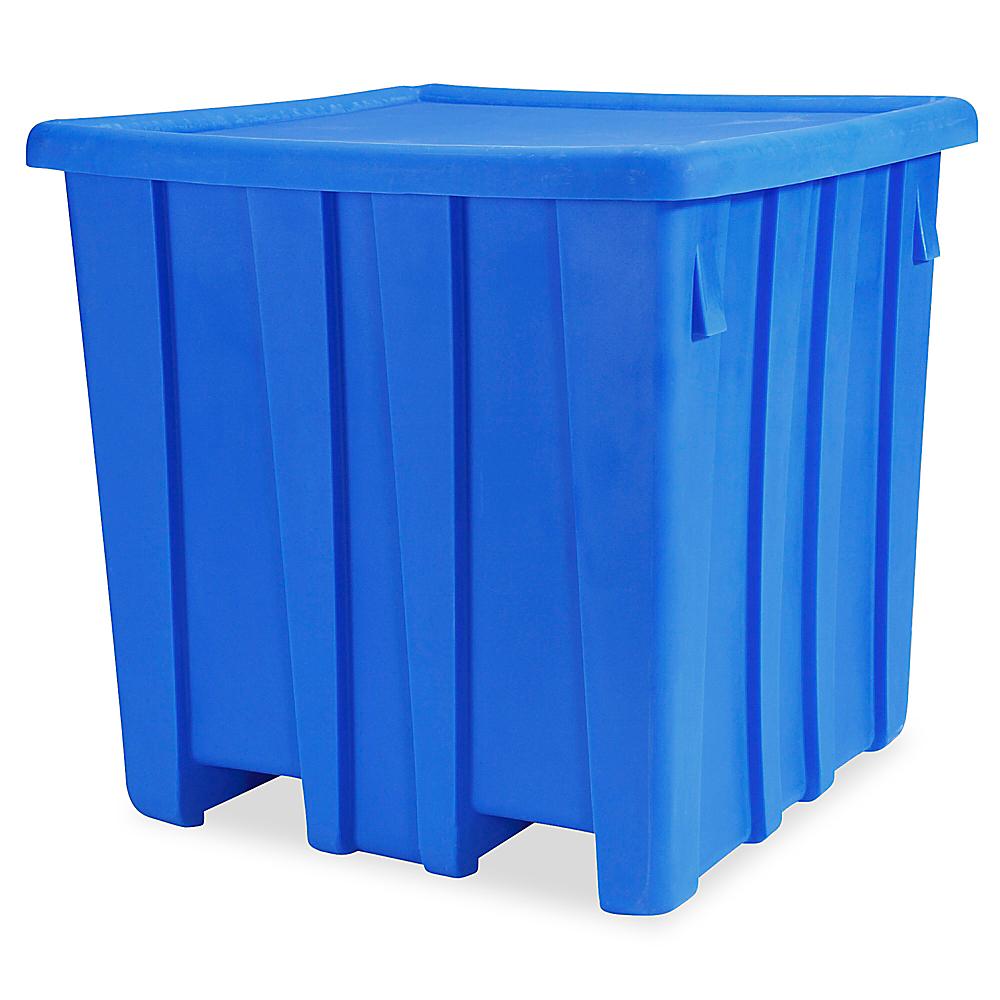Understanding Leasing Arrangements for Mass Plastic Containers: What You Need to Know
Leasing mass plastic containers can be a calculated selection for services wanting to take care of costs and performance. Nevertheless, guiding with the complexities of leasing arrangements calls for cautious factor to consider. Secret factors such as lease period, repayment frameworks, and upkeep responsibilities have to be extensively assessed. In addition, prospective concealed fees and the owner's reputation play crucial duties in forming reliable collaborations. Understanding these components is essential for making educated choices in an ever-evolving market landscape. What facets should one focus on to ensure a successful leasing setup?
The Advantages of Leasing Bulk Plastic Containers
Leasing bulk plastic containers provides a practical solution for businesses looking for effectiveness and cost-effectiveness. This strategy permits companies to gain access to top notch containers without the significant upfront investment commonly linked with purchasing. By renting, organizations can allocate monetary resources better, concentrating on core procedures instead of hefty capital expenses. In addition, leasing setups typically consist of upkeep and assistance services, guaranteeing that containers continue to be in peak condition and minimizing the concern on inner sources.
In addition, renting offers versatility, enabling business to readjust their container supply according to rising and fall demand (Bulk Plastic Containers). This adaptability can cause enhanced supply management and decreased waste. Additionally, leasing can help with access to the most recent container modern technologies, assisting organizations remain competitive in a quickly transforming market. Ultimately, the advantages of renting bulk plastic containers can boost functional performance, improve money flow, and assistance sustainable methods, making it an eye-catching option for numerous industries

Secret Factors To Consider When Selecting a Leasing Arrangement
What elements should companies consider when selecting a leasing arrangement for bulk plastic containers? First, business need to evaluate their details demands, consisting of the type and quantity of containers required, to make sure the arrangement aligns with functional needs. Next, the lease duration is crucial; businesses have to establish if a temporary or long-lasting lease best fits their stock turnover and use patterns.
Price is one more substantial factor to consider; businesses must evaluate the overall cost of leasing, consisting of any type of covert fees or charges. Additionally, they must examine the vendor's track record and integrity, as a credible partner can influence the total leasing experience.

Flexibility also plays a vital role; organizations may gain from arrangements that permit for adjustments in container quantities based on transforming demands. Examining upkeep and support options supplied by the renting firm is important to ensure functional connection and reduce interruptions.
Comprehending Leasing Terms and Problems
A thorough understanding of leasing conditions and terms is essential for businesses to browse the complexities of leasing mass plastic containers effectively. Leasing agreements generally include vital elements such as lease duration, payment structures, upkeep obligations, and discontinuation conditions. Businesses should thoroughly evaluate the lease period to guarantee it straightens with their operational requirements, whether temporary or lasting. Repayment structures may differ, including regular monthly or quarterly repayments, and comprehending these can considerably affect capital. Maintenance obligations have to be plainly specified, as they determine that is responsible for fixings and maintenance throughout the lease duration. Furthermore, discontinuation provisions can stipulate problems under which the lease can be finished too soon, which is essential for businesses expecting prospective adjustments sought after. By thoroughly examining these terms, companies can make educated decisions that line up with their operational demands and calculated objectives.

Common Challenges to Prevent in Leasing Arrangements
While maneuvering leasing setups for bulk plastic containers, businesses usually run into common pitfalls that can bring about pricey mistakes - plastic bulk containers. One significant issue is failing to extensively understand the lease terms, which can lead to unexpected fees or commitments. Additionally, overlooking the significance of Recommended Reading correct container maintenance may cause expensive repairs or fines for problems. Another constant error is not examining the complete cost of the lease, consisting of covert costs such as insurance coverage or transportation
Organizations may additionally disregard to assess the owner's reputation, running the risk of collaboration with an undependable service provider. Not considering the my link flexibility of lease terms can hinder operational adaptability. Poor paperwork of the leasing contract can create disputes, leading to financial or legal complications. By recognizing these challenges, companies can better prepare themselves to navigate leasing arrangements extra effectively and avoid harmful effects.
Tips for Discussing the very best Lease Terms
How can organizations protect one of the most favorable lease terms for bulk plastic containers? They must conduct extensive market research study to comprehend prevailing prices and terms. This understanding encourages them to bargain confidently and recognize affordable deals. Next off, organizations can leverage their buying volume to work out better rates, highlighting long-term setups that might profit both events.
Additionally, they need to meticulously evaluate lease agreements, paying very close attention to provisions relating to maintenance, insurance, and fines for very early termination. Engaging legal guidance for an in-depth testimonial can avoid expensive misunderstandings.
Lastly, organizations need to continue to be adaptable and open to going over different terms, such as prolonged lease durations for minimized monthly rates. By coming close to negotiations with prep work and a readiness to jeopardize, services can safeguard lease terms that line up with their operational requirements while decreasing expenses.
Regularly Asked Questions
How Do I Identify the Right Quantity of Containers to Lease?
To establish the right quantity of containers to rent, one must assess existing important site supply demands, projection need variations, take into consideration preparations, and represent storage constraints, guaranteeing an ideal equilibrium in between supply and operational efficiency. Bulk Plastic Containers.
Can I Personalize the Containers to Meet My Particular Needs?
Yes, personalization of containers to satisfy certain needs is usually possible. Numerous leasing firms supply options for alterations, allowing clients to tailor functions, sizes, and shades, making sure the containers align with functional requirements and preferences.
What Happens if I Need to Return the Containers Early?
If containers are returned early, the leasing contract might state penalties or costs. The firm may examine the condition and use, possibly changing expenses based upon the staying lease term and pre-established terms.
Exist Any Maintenance Duties for Leased Containers?
Rented containers generally call for the lessee to keep them in good problem, resolving small damage. Significant fixings usually fall under the lessor's obligations, but specifics can vary based upon the leasing arrangement.
How Is the Leasing Rate Structured Over the Contract Duration?
Leasing costs are usually structured based on the duration of the agreement, regularity of settlements, and container specifications. Additional elements, such as upkeep and insurance coverage costs, might additionally influence the general pricing plan over time.
